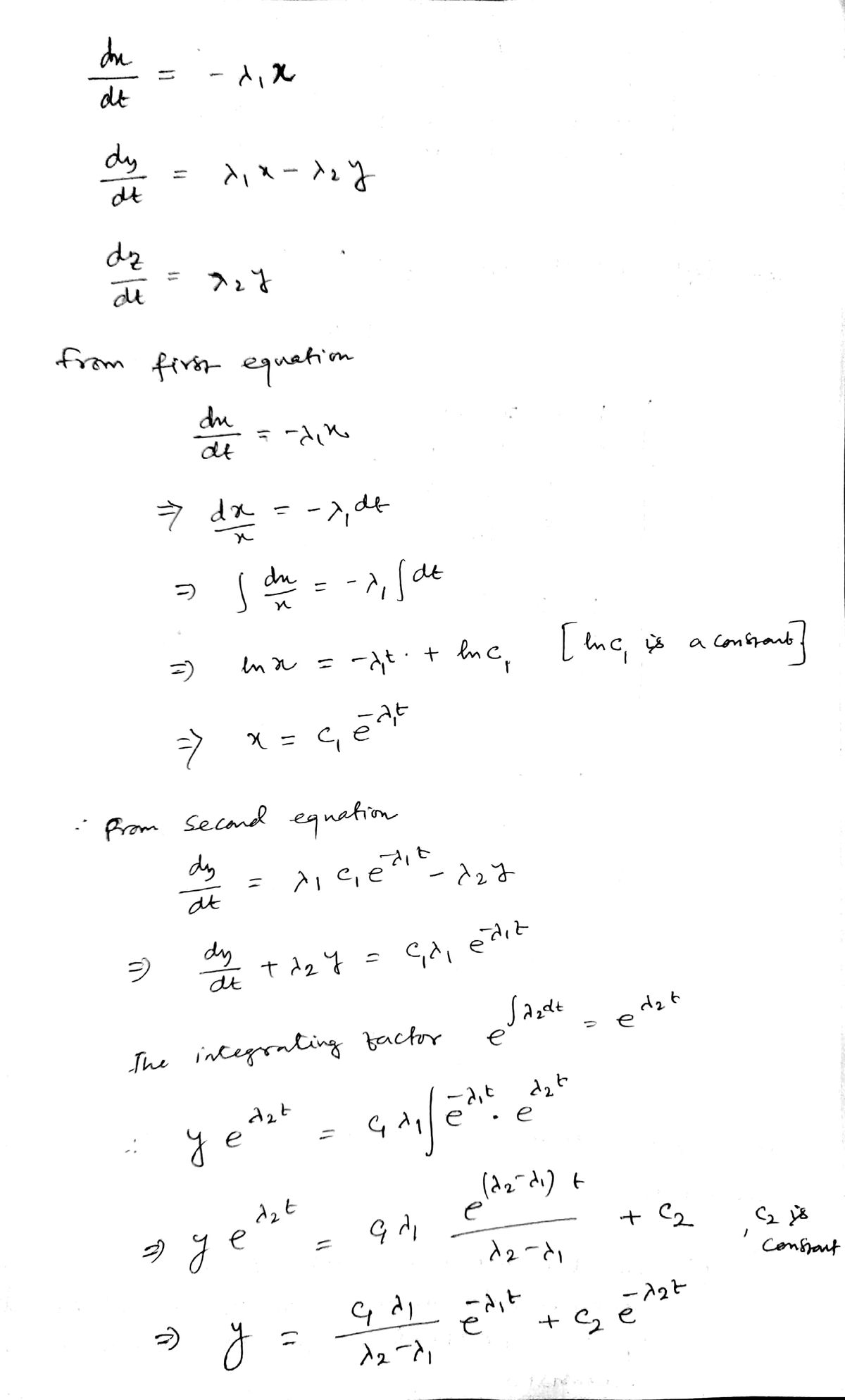We have not discussed methods by which systems of first-order differential equations can be solved. Nevertheless, systems such as dx = -i,x dt = 1,x - 12y dt dz = i,y dt (which is discussed here) can be solved with no knowledge other than how to solve a single linear first order equation. Find a solution of the above system subject to the initial conditions x(0) = xo, Y(0) = 0, z(0) = 0. (Assume that i, + 1.) x(t) = y(t) = z(t) =
We have not discussed methods by which systems of first-order differential equations can be solved. Nevertheless, systems such as dx = -i,x dt = 1,x - 12y dt dz = i,y dt (which is discussed here) can be solved with no knowledge other than how to solve a single linear first order equation. Find a solution of the above system subject to the initial conditions x(0) = xo, Y(0) = 0, z(0) = 0. (Assume that i, + 1.) x(t) = y(t) = z(t) =
Linear Algebra: A Modern Introduction
4th Edition
ISBN:9781285463247
Author:David Poole
Publisher:David Poole
Chapter2: Systems Of Linear Equations
Section2.4: Applications
Problem 15EQ
Related questions
Question
100%

Transcribed Image Text:We have not discussed methods by which systems of first-order differential equations can be solved. Nevertheless, systems such as
dx
%D
dt
dy
dt
dz
dt
(which is discussed here) can be solved with no knowledge other than how to solve a single linear first order equation. Find a solution of the above system subject to the initial conditions
x(0) = x,, Y(0) = 0, z(0) = 0. (Assume that 1, + 12.)
x(t)
y(t)
z(t)
Expert Solution
Step 1

Trending now
This is a popular solution!
Step by step
Solved in 3 steps with 3 images

Knowledge Booster
Learn more about
Need a deep-dive on the concept behind this application? Look no further. Learn more about this topic, advanced-math and related others by exploring similar questions and additional content below.Recommended textbooks for you

Linear Algebra: A Modern Introduction
Algebra
ISBN:
9781285463247
Author:
David Poole
Publisher:
Cengage Learning

Linear Algebra: A Modern Introduction
Algebra
ISBN:
9781285463247
Author:
David Poole
Publisher:
Cengage Learning